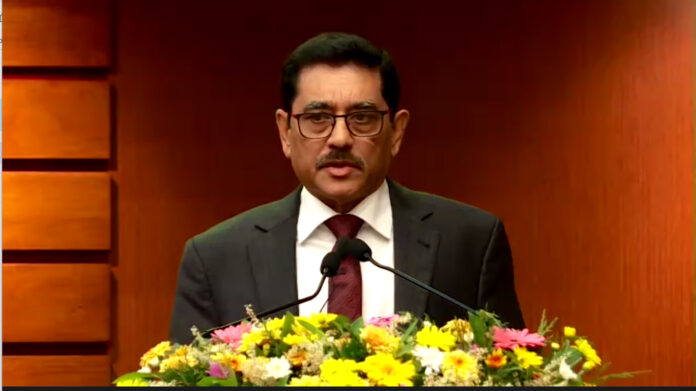September 22, Colombo (LNW): Sri Lanka has made significant strides in restoring macroeconomic stability and laying the foundation for recovery, but the road ahead remains uncertain due to shifting global dynamics, warned Central Bank Governor Dr Nandalal Weerasinghe in a recent address assessing the country’s economic trajectory.
Dr Weerasinghe acknowledged that the domestic economy has stabilised following an extended period of volatility, with key fiscal and monetary reforms beginning to bear fruit. However, he cautioned that sustaining growth will require navigating an increasingly unpredictable international environment shaped by geopolitical tensions and a rise in protectionist economic policies.
“The global economic landscape is becoming more fragmented,” Dr Weerasinghe noted, pointing to a resurgence of trade barriers and tariff regimes, particularly among major economies. He identified recent tariff hikes by the United States—Sri Lanka’s largest export destination—as a particular challenge. In 2024, nearly 25% of Sri Lanka’s exports were absorbed by the U.S. market.
Despite these headwinds, Sri Lankan authorities have succeeded in negotiating a phased reduction of U.S. tariffs on select exports—from a steep 44% in April to 20% by August 2025. While this development offers temporary relief, Dr Weerasinghe stressed that the country’s overdependence on a handful of markets and low value-added products leaves it vulnerable to further external shocks.
“This is a wake-up call,” he said, urging both the public and private sectors to focus on diversifying export portfolios and developing niche, high-value sectors capable of weathering global disruptions. The need for a more resilient and adaptable economic model, he added, is no longer a matter of strategic ambition but of survival.
The Governor also raised concerns about the broader implications of protectionism, warning that global inflation could re-accelerate if supply chains are further strained by rising input costs and shifting trade alliances. Increased tariffs on raw materials and energy inputs may intensify price instability and delay much-needed investment flows, both in Sri Lanka and globally.
Geopolitical instability, especially in conflict-prone regions such as the Middle East, was also cited as a growing concern. Ongoing tensions have led to elevated shipping costs and logistical delays, threatening global supply chains and reducing predictability for exporters and importers alike.
While hopeful that international tensions may subside over time, Dr Weerasinghe underscored the importance of building economic resilience at home through sound fiscal management, sectoral diversification, and greater integration into alternative global markets. He also emphasised the role of multilateral engagement in helping small and vulnerable economies like Sri Lanka weather future economic storms.
“We’ve stabilised the ship,” he concluded. “But we must now reinforce the sails to withstand the unpredictable winds of global change.”
